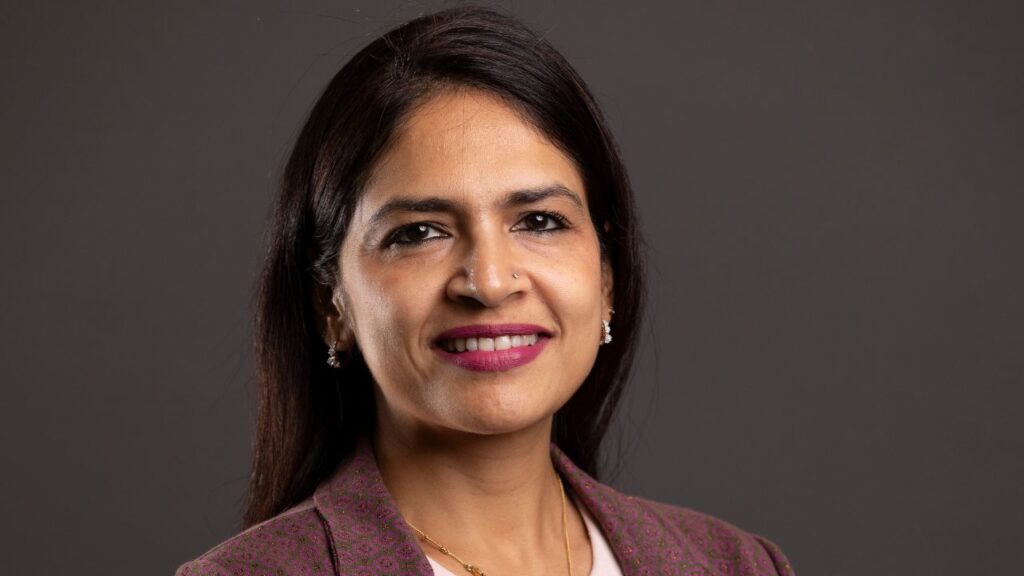1. What’s your leadership mantra in the fast-evolving tech landscape?
My mantra has been to empower people, foster innovation, and inspire teams through action. It is important to cultivate trust, embrace uncertainty as opportunity, and balance strategic direction with creative autonomy. This guides my daily decisions and interactions.
2. How do you inspire and motivate your team during a challenging time?
Difficult times demand situational leadership with a blend of empathy, clarity and action. What has worked for me is continuous and transparent communication. It is very important that not just me, but also the team stays connected to the larger purpose. I prioritize celebrating small successes, leading by example, and maintaining humanity.
3. In an era of AI and automation, how do you see the role of human leadership evolving?
In a world where change is constant, leadership must evolve to meet higher-order expectations. This means shifting focus from mere task management to setting a clear and inspiring vision. Emotional intelligence becomes indispensable. At the same time, it is important to ensure ethical compliance as we harness new technologies.
4. Tell us about a major screw-up in your career—what went wrong and what did you learn?
As a leader, I have always stressed the importance of balancing speed with customer obsession. Sometimes, while pursuing rapid innovation, we moved quickly without sufficient customer insights, leading to technically sound solutions missing the mark. This deepened my commitment to combining ‘Bias for Action’ with a ‘Deep Dive’ and building in diverse perspectives.
5. What’s a mistake you see many young tech entrepreneurs making?
We live in a fast-paced world where quick success is often the norm. However, it’s important to recognize that meaningful progress takes time. What I sometimes see missing today is the patience and commitment to build with a long-term perspective.
6. How do you handle failure, and how do you encourage a failure-friendly environment?
Failure does hurt. In the short term, it brings self-doubt. I set aside time to process these emotions, then re-emerge with focus and energy. I document my learnings, speak to mentors, set new milestones, and move forward. This helps me transform setbacks into growth opportunities.
7. What’s the next big disruption you foresee in the tech industry?
AI isn’t just changing our tools—it’s reimagining human potential! We are witnessing an explosion of AI applications that are liberating us from mundane tasks while amplifying creativity. I’m thrilled about how AI will transform business models, spawn new industries, and help solve global challenges through human-machine collaboration.
8. How do you unplug from the tech world? Or do you? Any non-negotiable habits?
I guard my work-life harmony fiercely. Discovering competitive tennis 18 months ago transformed my life. I now compete quarterly in ITF tournaments, climbing to the top 100 in mixed doubles for the 40+ women’s category. The court teaches me daily lessons: resetting after setbacks, staying composed, and pushing through challenges.
9. Books that changed your perspective on leadership & technology
I don’t read a lot of technology books, but I did recently read Elon Musk’s autobiography and found it fascinating. His ability to pursue moonshot visions while maintaining engineering pragmatism shows how transformative leadership can reshape industries—a mindset I find both inspiring and instructive.
10. Podcasts and inspiring quotes that you want to recommend our readers
I love Roger Federer’s speech at Dartmouth—especially his point that he won only 54% of the points, yet still became World No. 1. Even top players win just half the time. That illustrates resilience. Three quotes that inspire me: ‘Nothing in life is to be feared, it is only to be understood’, ‘Work with a bias toward action’, and ‘Keep it simple. Complexity is the enemy of execution.’



